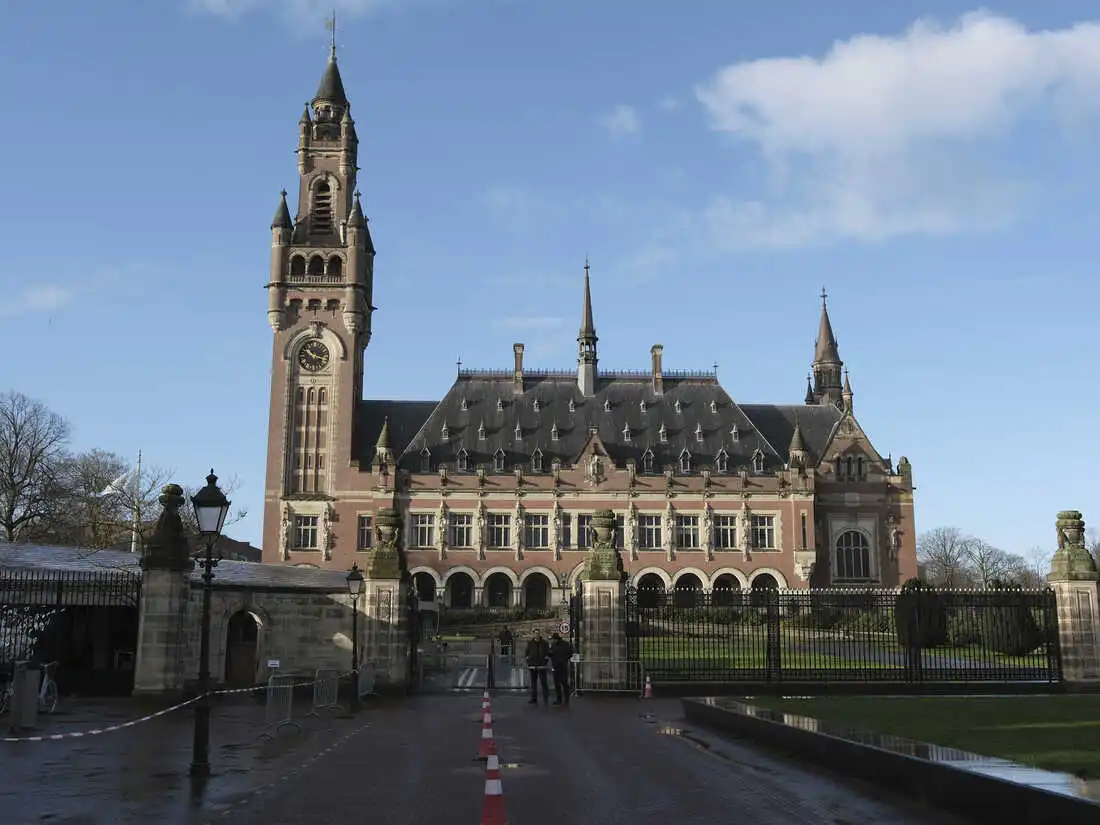The United States told the UN’s top court on Wednesday that Israel should not be legally forced to withdraw from occupied Palestinian territory without security guarantees.
The International Court of Justice is holding a week of hearings after a request from the United Nations, with an unprecedented 52 countries giving their views on Israel’s occupation.
Most speakers have demanded that Israel end its occupation, which came after a six-day Arab-Israeli war in 1967, but Washington came to its ally’s defense at the court.
“The court should not find that Israel is legally obligated to immediately and unconditionally withdraw from occupied territory,” said Richard Visek, legal advisor at the US State Department.
“Any movement towards Israel withdrawal from the West Bank and Gaza requires consideration of Israel’s very real security needs,” he argued.
“We were all reminded of those security needs on October 7,” he said, referring to the Hamas attacks that sparked the current conflict.
The UN has asked the ICJ to hand down an “advisory opinion” on the “legal consequences arising from the policies and practices of Israel in the Occupied Palestinian Territory, including East Jerusalem”.
The court will probably deliver its opinion before the end of the year, but it is not binding on anyone.
Palestinian Foreign Minister Riyad al-Maliki told reporters after the US statement: “I expected much more. I didn’t hear anything new.”
Washington has been insisting that the Israel-Palestinian conflict be addressed in “other fora and not here”, Al-Maliki said.
“Well, we tried other fora for the last 75 years and we confronted the US veto and the US hegemony over decision-making processes within the UN system,” he said.
“And that’s why we came to the ICJ.”
Israel is not taking part in the oral hearings, but submitted a written contribution in which it described the questions the court had been asked as “prejudicial” and “tendentious”.
The October 7 attacks and the ongoing violence in the Gaza Strip “reinforce the United States’ resolve to urgently achieve a final peace”, Visek said.
Also speaking Wednesday, the representative from Egypt, which has played a key role in talks between Israel and the Palestinians, said the occupation was “a continued violation of international law”.
“The consequences of Israel’s prolonged occupation are clear and there can be no peace, no stability, no prosperity without upholding the rule of law,” foreign ministry legal advisor Jasmine Moussa said.
The hearings began Monday with three hours of testimony from Palestinian officials, who accused the Israeli occupiers of running a system of “colonialism and apartheid”.
Al-Maliki had urged the judges to call for an end to the occupation “immediately, totally and unconditionally”.
South Africa’s ambassador to the Netherlands told the court that Israel’s policies were “more extreme” than the apartheid black South Africans suffered before 1994.
The case is separate from a high-profile case brought by Pretoria against Israel for alleged genocide during its current offensive in Gaza.
In that case, the ICJ ruled that Israel should do everything in its power to prevent genocidal acts in Gaza and allow humanitarian aid.




